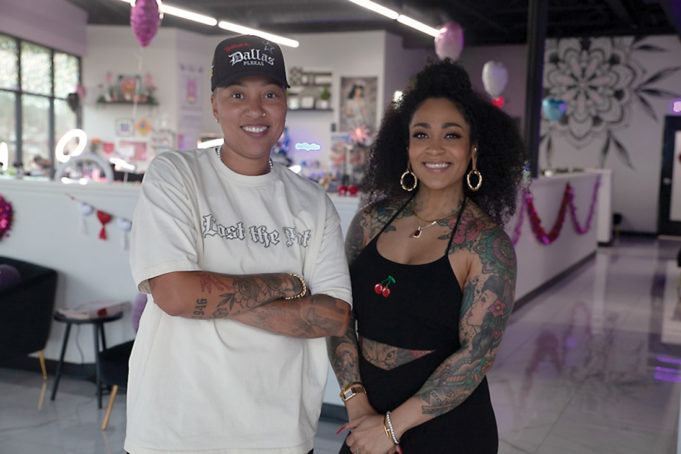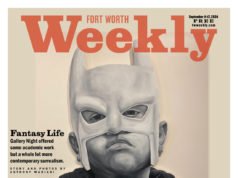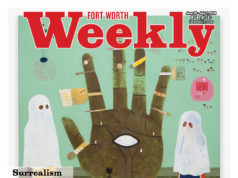Dominique Ransom knew she had a cute shop. After all, she had designed Lilac Tattoo Studio with the “divine feminine” in mind. Her bright, airy Dallas space overflowed with flowers, sparkles, and good vibes. The 31-year-old got her first tattoo at 15 and began apprenticing in her early 20s. Though she felt at home in studios better known for dim lights and heavy metal music than charming decor, she knew many of her mostly female clients did not.
Nick Flores remembers the first time she visited Lilac. It wasn’t long after Ransom opened in late 2020. “I just got into the shop and was like, ‘It’s so cute in here. There’s nothing like this, Dom. Do you even know what you’ve got?’ ”
Ransom shrugged.
“Well,” Flores went on, “I’m gonna make a video, and I guarantee it’s going to go viral.”
Flores, a social media content maker, posted a 15-second video to TikTok that night, identifying the shop as a Black woman-owned, all woman-staffed, LGBTQ-friendly space.
The video hit 1 million views overnight, and when Ransom walked into work the next day, she found a phone ringing nonstop and a line out the door. The owner hired more artists and in July 2023 opened a second location, this one in North Fort Worth.
On a recent weekday afternoon in Fort Worth, Elizabeth Almendarez lay on a tattoo table for the first time, nervous but excited, waiting for artist Gracie Hackworth to begin. Almendarez’s mother, Cristina Almendarez, looked on from the lobby.
A real estate agent, Almendarez had chosen to get her best friend’s name, in her best friend’s handwriting, on her right shoulder. The name? Cristina.
“She’s my best friend,” Almendarez said.
After much deliberation, Almendarez decided to get her first tattoo at Lilac after watching stories about the Fort Worth studio on Instagram and seeing the friendly attitude and pretty space.
“It seemed like somewhere I’d be comfortable,” she said.
Tattoo shops as a concept, deserved or not, have a reputation as dark, loud, male-dominated joints with intimidating staff.
“Lots of girls don’t want to fucking go in there,” Ransom said. “So, I’ll take them off your hands, so you can tattoo all the cool shit you wanna tattoo, and we’ll take the flowers ’n’ shit.”
Across the room from Almendarez, Jasmine Meyer lay very still on the table while Jordan Wheeler inked flowers ’n’ shit onto her forearm in the form of a sleeve. Meyer said she found the artist on Instagram and liked her work. Wheeler, who has worked at the shop since July, said, “Men in the industry can be intimidating.”
Every Lilac tattooer had a similar sentiment. Skailyr Katt said her time in more old-school shops was “not very fun.” Bella Harrell used three terms: “male-dominated, toxic, just terrible.”
Ransom does not readily relate. At 19, she was asked by her regular tattoo artist to tattoo him to try it out. Then he gifted her the machine. This led to a few years of learning on the fly, followed by a formal apprenticeship at a big-name studio in Dallas. Ransom, covered head to toe in ink with a big, loud, “straight-shooter” personality, was in her element in more rough-and-tumble environs, but she recognizes that not everyone feels the same.
Once she realized women and queer-identifying people were flocking to her shop, she began promoting Lilac Tattoo Studio as a business for everyone. “As soon as I saw … the clients that were coming, I was like, ‘Bro, I want to push it out there that we are inclusive.’ ”
This softer approach puts people like Almendarez and everyone else who would feel uncomfortable at a traditional shop at ease. It also makes good business sense.
A 2023 survey by the Pew Research Center says that 38% of women have tattoos compared to only 27% of men. The same survey showed 51% of queer-identifying Americans rock ink, compared to 31% of their straight-identifying counterparts.
Lilac is one of several studios in North Texas and across the nation taking a different approach to the art. North Texas has several woman-owned shops, Lady Magnolia Tattoo and Dolls House of Ink among them. Ransom said she wants everyone, regardless of race, sexuality, or life experience, to feel comfortable in her spaces.
“You deserve to decorate your body, pierce it, tattoo it, whatever you want to do,” Ransom said. “I’m just all about expressing yourself because I’ve always been the odd kid that wanted to be … just different.”
Read about how TCU’s women’s college athletes are more visible than ever before in Frog Female Faction.
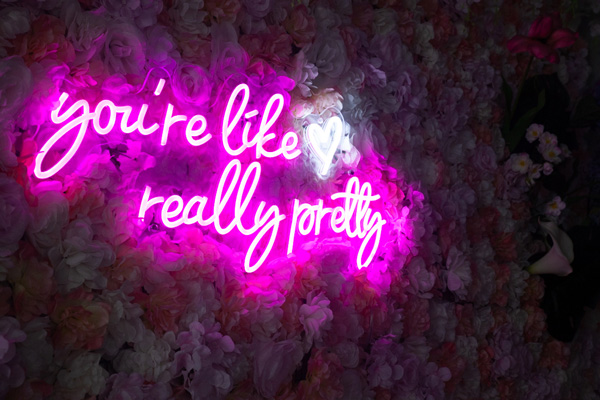
PHOTO BY MADISON SIMMONS
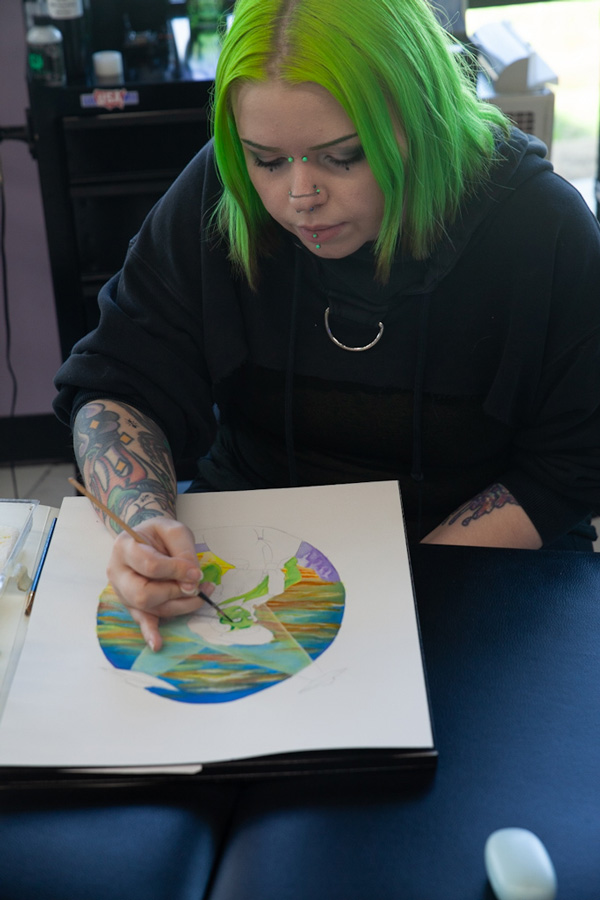
PHOTO BY MADISON SIMMONS
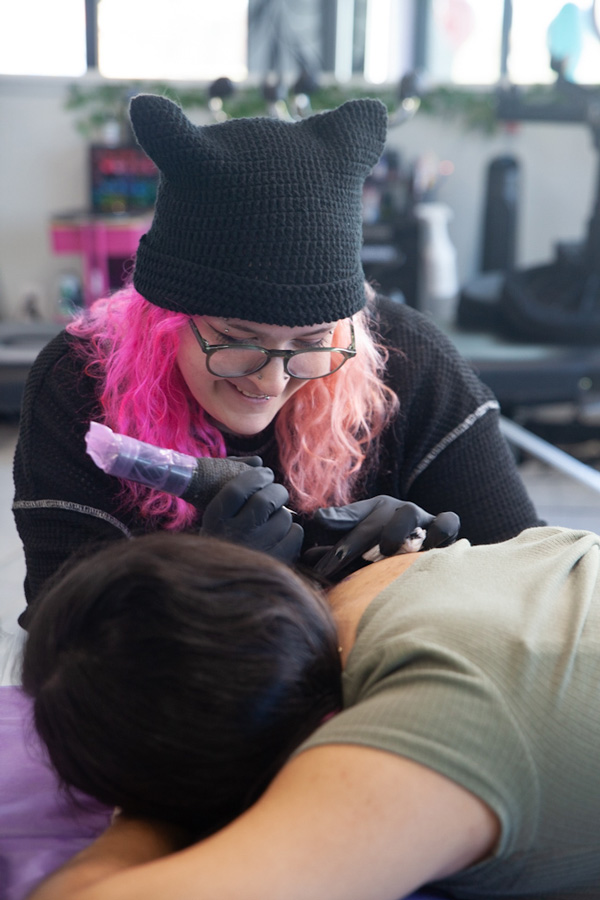
PHOTO BY MADISON SIMMONS
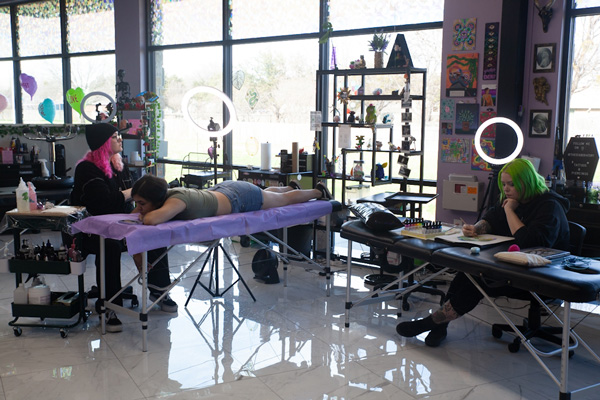
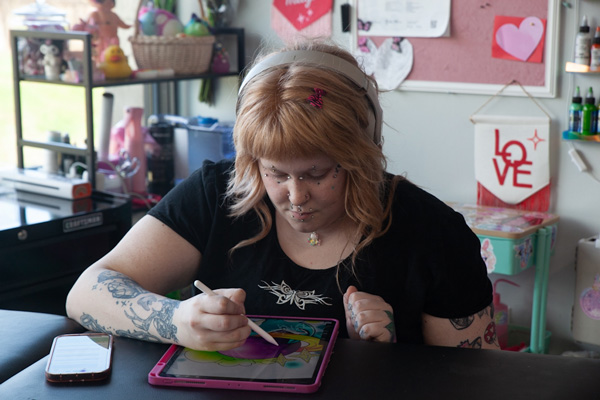
PHOTO BY MADISON SIMMONS
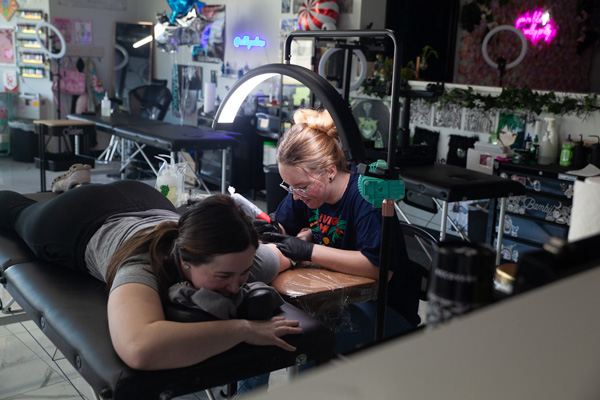
PHOTO BY MADISON SIMMONS
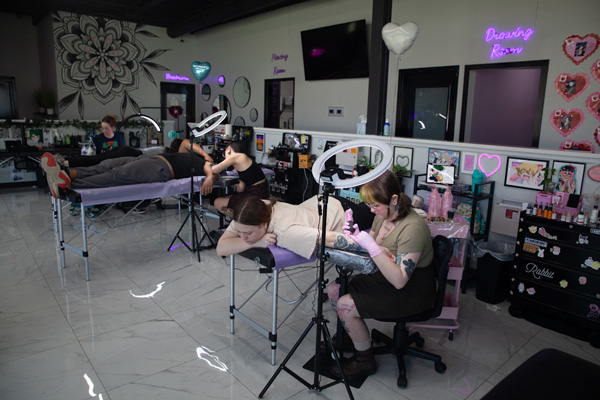
PHOTO BY MADISON SIMMONS
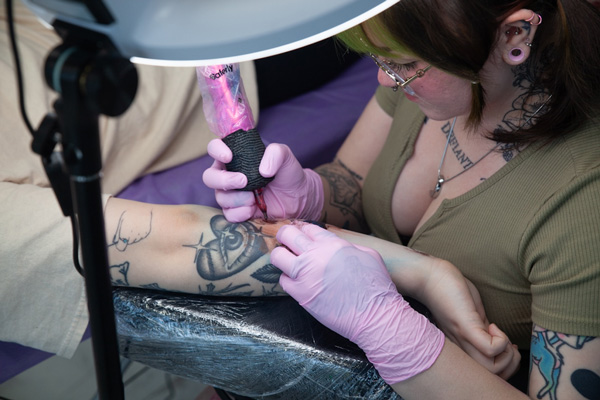
PHOTO BY MADISON SIMMONS
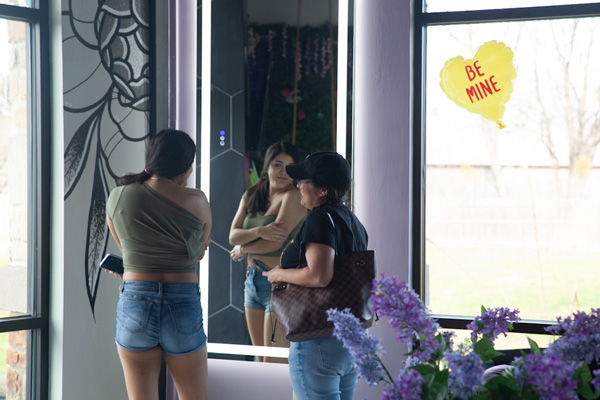
PHOTO BY MADISON SIMMONS
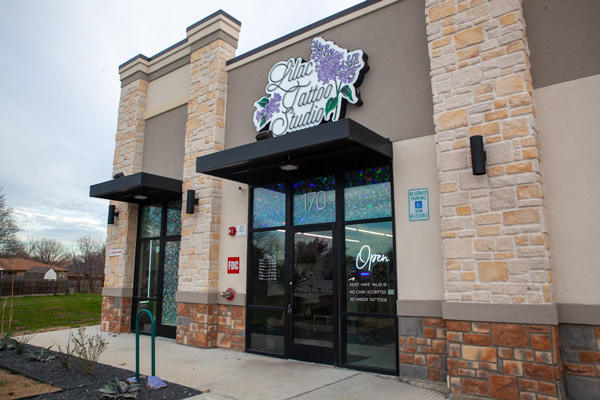
PHOTO BY MADISON SIMMONS



